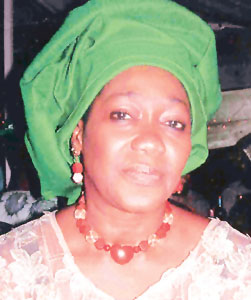Exclusive, Top Stories, Photo News, Articles & Opinions |
|---|
Waziri Canvasses Support For Assets Forfeiture Law |
|||||
|---|---|---|---|---|---|
Waziri Canvasses support for Assets Forfeiture Law
Executive Chairman, Economic and Financial Crimes Commission(EFCC), Mrs. Farida Waziri has again called on Nigerians to support the proposed asset forfeiture bill. According to her, the absence of a non – conviction- based assets law was a major omission in the nation’s statute book, adding that its enactment would boost current efforts at fighting corruption and money laundering. Mrs Waziri who was speaking on the second day of the seminar, informed the gathering that following her meeting on the matter with the House of Representatives Committee on Drugs, Narcotics and Financial Crimes, the drafters of the proposed bill on non-conviction-based asset forfeiture have gone back to the drawing board to perfect the document. She expressed optimism that the National Assembly would enact the law once the bill is finally presented which she hopes will be very soon. In the same vein, a senior World Bank official, Mr. T. S. Greenberg who presented a paper entitled: Winning the Anti Corruption Fight through the Non-Conviction- based Asset Forfeiture Regime, outlined the benefits of such a law to include removing the motivation of crime by denying criminals of the proceeds of their enterprise. He advised Nigeria to take advantage of the experience of countries such as the United States which has a long history of use of civil forfeiture law with a view to domesticating same to fast track its efforts at fighting corruption, money laundering and other genre of economic crimes. He however warned that a non- conviction-based asset forfeiture regime should not take the place of criminal prosecution. “People must be punished for committing crimes”, he declared. Greenberg suggested that both civil forfeiture regime and criminal prosecution should be used side by side to foreclose the prospect of cynical accusation about a soft landing for the ‘big guys’.
Also commenting on the subject, Senate leader, Senator Victor Udoma Egba affirmed the benefits of a civil forfeiture regime but drew the attention of the gathering to likely constitutional impediments to its use in Nigeria. According to him, the Nigerian Constitution presumes all suspects as innocent until proven guilty in court. He wondered whether taking assets from suspects who are yet to be convicted in a civil forfeiture regime is not tantamount to conviction before trial. He also wondered whether the proceeds of crime can actually be traced in an environment like ours where there is an absence of a freedom of information law. Senator Udoma-Egba however delighted the gathering with the disclosure that the Freedom of Information bill is now before the Senate and would soon be passed into law. On his part, Justice Joseph Oyewole of the Lagos High Court, disclosed that his experience in adjudicating financial crimes cases had shown that fraudsters are more pained by the loss of the proceeds of crime than the time spent in jail. He however agrees with Senator Udoma-Egba that a robust Freedom of Information law is sine qua non for the success of a civil forfeiture regime. In addition, he said if the proposed law would have the desired effect, law enforcement officers must be trained to know how to managed seized assets. He therefore suggested the creation of an Asset Forfeiture and Intelligence Unit. Earlier in the day, the role of law enforcement agencies in the fight against corruption was the focus of discussion, with professor Etannibi Alemika outlining some of the factors that predisposes law enforcement officers to corruption. These, he said, include the pervading culture of impunity, corruption among the political and economic class as well as internal factor such as poor remuneration, inadequate facilities, etc. He observed that while corruption is endemic in all segments of the Nigerian society, it is objectionable among law enforcement officials who have a primary responsibility to prevent and work at its elimination. Nevertheless, he submitted that to check incidence of corruption amongst law enforcement officers, there is need to first eliminate the factors that exact corruptive influence on them. He suggested among others, the rationalization of the functions of law enforcement agencies to avoid overlap, adequate funding, and proper pre-recruitment screening of officials. In his contribution, a former deputy inspector general of police, Mr. Parry Osayande blamed corruption in law enforcement agencies on the prevailing culture of impunity. He said the only way out is for the Rule of Law to prevail in all aspect of our national life. Roda Akor, a deputy comptroller of customs who represented the Comptroller General, Alhaji Hamman Bello Ahmed said the issue is not whether law enforcement officers are corrupt but how to tackle it. She said the society owe law enforcement officials a duty to help fight corruption by not exacting undue corruptive pressures on them. -------------------------------------------------------------
|
|||||
|
|
